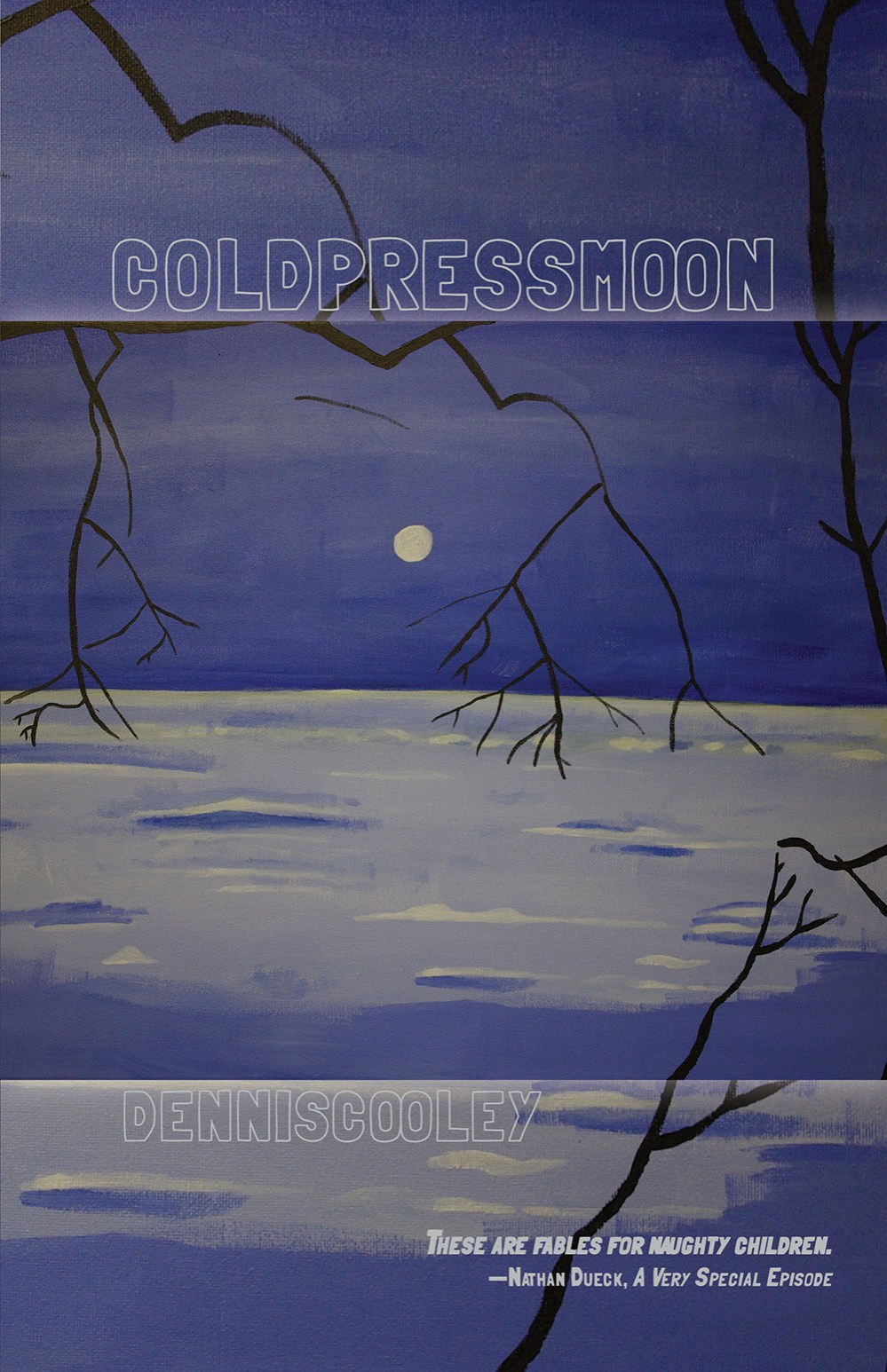From “The Functions,” in “III: The Lost Children:” “The father is not sure where he stands. He knows there can be changes to the story. Someone will dispatch. Someone will depart, though we cannot be sure who.”

The since-Disneyfied tales of Europe were originally far grislier, their oral versions relying on gruesome details instead of colourful animation to brand themselves into children’s minds. Cinderella’s stepsisters would hack off their own toes to fit that slipper; vengeful hog brethren would boil the wolf alive and feast on his remains.
It’s such darker cores of European fairy tales and lore Dennis Cooley explores in cold press moon. The retired professor re-subverts major and minor characters, like Rapunzel’s duplicitous captor, Hansel and Gretel’s duped and remorseful father, a darkly observant Mina Harker, the frog prince’s appalled future father-in-law, or Red Rose and Snow White’s lecherous stalker. The poems, gathered into sections by tale or character, expose new intentions, understandings, and desires.
The poems, and the arcs they build, are consistently dark, rife with anxiety and shadows, but they bleed phosphorescent into the night when gutted. And they have all been gutted. No assumption is safe with Cooley, neither at the story or character level nor, as usual, at the level of word, phrase or syllable, as in “II. Two-Thirds of the Sun:” “Lean over the wax, lethargic as a slug, / answer to chemicals the world swirls within.”
Cooley’s erotic approach in exploring sexual exploitation versus sexual liberation of the female characters most of us picture being between 14 and 17 is pointedly unsettling. A creepy old landlord hides in the weeds to watch Red Rose and Snow White make out, before they head home to slide down their pet bear’s belly over and over again for fun. The princess’s mother speculates at length on the delights of having a deft-tongued frog as lover. Or Rapunzel’s mother listens in on the tryst she briefly allows for the sake of procreation in “Mother Gothel” in “IV: Rapunzel”: “feeling her voice rise inside / please oh please / she rushes and colour / rises on her neck / the perfume of her body.”
Themes of sinister sexuality are no doubt difficult to avoid in this genre. Most of his source fairy tales have traditionally functioned as neon-bright no-trespassing signs demarcating girls and women as property. And Cooley’s meta approach, inserting himself as storyteller throughout his tales, implies he knows what he’s doing in playing on that. But knowing he’s doing so consciously, however, doesn’t make the fetishization of young characters in cold press moon less uncomfortable to read.
Ultimately, the characters and plots of folk and fairy tales have been reshaped countless times to suit the needs of different storytellers: parents, religions, councils, Disney Inc. Cooley at last asks the characters themselves how they’re doing. And after everything they’ve been through, it’s not surprising that they’re far from all right.
As ever, Cooley uses his stunning poetic skill to dismantle, then rebuild, both language and readers’ assumptions in this collection. In doing so, he manages to retell in bold, new, and disturbing ways what has so often been retold.
Bios
A J Dolman
AJ Dolman is the author of Lost Enough: A collection of short stories and two chapbooks of poetry, and co-editor of Motherhood in Precarious Times, an anthology of non-fiction, essays and poetry. Their poetry and fiction have appeared in journals, magazines and anthologies, including Imaginary Safe House, Another Dysfunctional Cancer Poem Anthology, Canadian Ginger, Hamilton Arts & Letters, Grain and Arc Poetry Magazine. Twitter: @ajdolman (provided for their review of Hustling Verse: An Anthology of Sex Workers’ Poetry)

